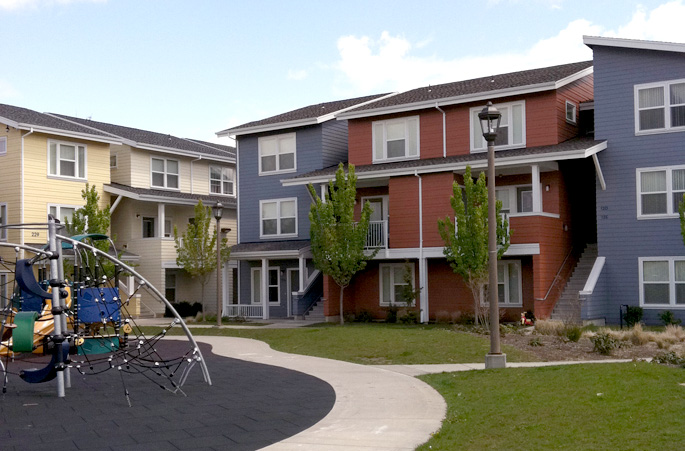
Last month, I had the opportunity to meet Louise Casey, director of the United Kingdom’s Troubled Families Programme. Casey has served in three successive British cabinets and is passionate about finding solutions to the deep problems that have trapped many families in intergenerational poverty. Unusual for a public official, before deciding on an approach, she personally interviewed a number of families to learn about their lives.
Much of what she learned is sadly familiar to those of us in the United States who are working to find solutions for the most vulnerable. Most depressingly, she was struck by how many people she interviewed described experiences with family violence and sexual abuse as a “normal” part of life—something they didn’t like, but also accepted as inevitable.
Sexual violence, joblessness, and psychological distress—these are just some of the problems that the most vulnerable families face, so any intervention with a chance of succeeding would have to intervene on multiple fronts. But if successful, the benefits would be undeniable. Casey estimates that serving these families effectively could save the United Kingdom billions of pounds per year in reduced costs for emergency room care, social services, and child welfare.
UK program echoes US intervention
The program Casey designed echoes the design of the HOST demonstration, with a family intervention worker (case manager) assigned to coordinate targeted support services for individual families. Like HOST, the United Kingdom’s program uses a strengths-based approach, asking families to set their own goals, like better school attendance for their children or stable housing. Casey hopes that this targeted and strategic intervention will finally break the cycle of poverty for these very vulnerable families.
Although the United Kingdom’s program is government-supported and large scale, the similarities to HOST—and to other service models targeting “frequent fliers” who drive up health care and social service costs—are striking. HOST targets the most vulnerable public housing families with intensive, two-generation service models with the goal of stabilizing both individual families and the larger community. Our new series of policy briefs highlights the complex challenges that keep these families stuck in poverty, including serious physical and mental health problems among adults and children, weak work histories, and low levels of educational attainment. Housing assistance has not protected them from other forms of hardship, and even those who are working report high levels of food insecurity.
The communities they live in can compound the family vulnerabilities. It is no surprise that Casey notes that many of the families her program serves live in social housing; as in the United States, many of these communities house large numbers of extremely poor households and have high levels of community and family violence. In Chicago’s Altgeld Gardens, one of the two HOST sites profiled in our briefs, even residents who truly want to make their community a safer place for kids distrust and fear their neighbors so much that they are unable to act. The other HOST site, in Portland, is mixed-income. Residents there report higher levels of community cohesion and trust, and from our observations, seem more likely to come together to protect children and their community.
Louise Casey is gambling that the investment the UK government is making in its most troubled families will pay off in better outcomes for kids and lower costs to taxpayers. Her team is evaluating the program and tracking costs and will have early results in 2014. Although HOST is much smaller, we and our partner housing authorities and service providers are hoping that it, like its predecessor the Chicago Family Case Management Demonstration, will show enough positive results for children and families to encourage other housing authorities to take on the challenge of addressing the needs of their most troubled residents.
Photo by Matt Rourke/AP
Tune in and subscribe today.
The Urban Institute podcast, Evidence in Action, inspires changemakers to lead with evidence and act with equity. Cohosted by Urban President Sarah Rosen Wartell and Executive Vice President Kimberlyn Leary, every episode features in-depth discussions with experts and leaders on topics ranging from how to advance equity, to designing innovative solutions that achieve community impact, to what it means to practice evidence-based leadership.
